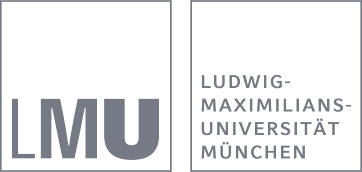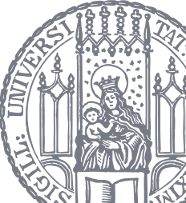| Coordinates | Thursdays from 10 to 12 AM in room 021 of Ludwigstrasse 31. |
| Lecturer | Tom Sterkenburg. Contact me at tom.sterkenburg lmu.de; visit me in room 126 of Ludwigstrasse 31. lmu.de; visit me in room 126 of Ludwigstrasse 31. |
| Course description | Means-ends epistemology (a.k.a. formal learning theory) is a relatively recent approach in the philosophy of science that takes its cue from the theory of formal learning in computer science. Motivated by ideas that go back to Hans Reichenbach and Hilary Putnam, the project of means-ends epistemology is to analyze what inferential methods can reliably and efficiently achieve which epistemic aims. In this course, we will read and discuss key texts in this field. We will give special attention to the divergences between means-ends epistemology and the Bayesian approach to the philosophy of science. |
| Contents and material | In the first half of the course, we will read chapters from the classic textbook by Kelly (1996), The Logic of Reliable Inquiry, and the recently updated Stanford Encylopedia of Philosophy entry on formal learning theory by Schulte (2002/22) for further background. In the second half of the course, we will study chapters and papers on a number of central topics of debate, including Bayesian reasoning and Occam's razor. See the below schedule for details. (There is some room for adjustment based on participants' interests as the course progresses.) |
| Assessment | The course is worth 9 ECTS. Your grade will be determined by a term paper at the end of the course. The term paper treats of a theme we have discussed in the course, and has a length of about 5000-6000 words. In addition, there will be two homework assignments about the material in the first half of the course. While these assignments do not count towards your grade, passing them is a necessary condition for passing the course. |
Schedule
| Date | Topic | Material | Assignment |
|---|---|---|---|
| Thu 28 Apr | Introduction. | Schulte (2002/22), up to sect. 1. Kelly (1996), ch. 1. | |
| Thu 5 May | Reliable inquiry. | Kelly (1996), ch. 2. | |
| Thu 12 May | Solvability of inductive problems, part 1. | Kelly (1996), ch. 3 up to sect. 3.3. Schulte (2002/22) sect. 3 up to 3.1. | |
| Thu 19 May | Solvability of inductive problems, part 2. | Kelly (1996), ch. 3 from sect. 3.4. Schulte (2002/22) sect. 3.3. | |
| Thu 26 May | NO CLASS: Ascension Day. | ||
| Thu 2 June | Characterizing solvability topologically, part 1. | Kelly (1996), ch. 4 up to sect. 4.5. Schulte (2002/22) sect. 3.2. | Deadline assignment 1. |
| Thu 9 June | Characterizing solvability topologically, part 2. | Kelly (1996) ch. 4 up to sect. 4.7. | |
| Thu 16 June | NO CLASS: Corpus Christi. | ||
| Thu 23 June | Computability. | Kelly (1996), ch. 6 up to sect. 6.6, propo. 6.3; sect. 7.1. Kelly (2004a) up to sect. 5. | Deadline assignment 2. |
| Thu 30 June | Probability and confirmation. | Kelly (1996), ch. 13 up to sect. 13.3. Kelly, Glymour (2004), sects. 1-3, 7. | |
| Thu 7 July | Occam's razor. | Kelly (2007). Fitzpatrick (2013). | |
| Thu 14 July | The problem of induction. | Steel (2010). Howson (2011). | |
| Thu 21 July | Logical reliability in science. | Davis (2020). | |
| Thu 28 July | Logical reliability and rationality. | Ye (in press). | |
| Fri 30 Sep | Deadline term paper. |
Material
Book
- Kelly (1996). The Logic of Reliable Inquiry.
Articles
- Schulte (2002/22). Formal learning theory. Stanford Encyclopedia of Philosophy. [link]
- Davis (2020). A framework for pragmatic reliability. Phil. Sci. [link]
- Fitzpatrick (2013). Kelly on Ockham's razor and truth-finding efficiency. Phil. Sci. [link]
- Howson (2011). No answer to Hume. Int. Stud. Phil. Sci. [link]
- Kelly (2004a). Incomputability: The problem of induction internalized. Theor. Comp. Sci. [link]
- Kelly (2007). A new solution to the problem of simplicity. Phil. Sci. [link]
- Kelly, Glymour (2004). Why probability does not capture the logic of scientific justification. Contemporary Debates in the Philosophy of Science.
- Steel (2010). What if the problem of induction is normative? Formal learning theory and Hume's problem. Int. Stud. Phil. Sci. [link]
- Ye (in press). Permissivism, the value of rationality, and a convergence-theoretic epistemology. Phil. Phenom. Res. [link]
Further reading
Books (computer science)
- Osherson, Stob, Weinstein (1986). Systems That Learn: An Introduction to Learning Theory for Cognitive and Computer Scientists.
- Jain, Osherson, Royer, Sharma (1999). Systems That Learn: An Introduction to Learning Theory.
Articles (philosophy)
- Chart (2000). Discussion: Schulte and Goodman's riddle. [link]
- Genin (2022). On falsifiable statistical hypotheses. Phils. [link]
- Kelly (2000). The logic of success. Brit. J. Phil. Sci. [link]
- Kelly (2004b). Justification as truth-finding efficiency: How Ockham's razor works. Mind. Mach. [link]
- Kelly (2011). Simplicity, truth, and probability. Handbook for the Philosophy of Statistics.
- Kelly (2016). Learning theory and epistemology. Readings in Formal Epistemology.
- Kelly, Genin, Lin (2016). Realism, rhetoric, and reliability. Synthese. [link]
- Kelly, Schulte (1997). Church's thesis and Hume's problem. Logic and Scientific Methods.
- Kelly, Schulte, Juhl (1997). Learning theory and the philosophy of science. Phil. Sci. [link]
- Lin (in press). Modes of convergence to the truth: Steps toward a better epistemology of induction. Rev. Sym. Log. [link]
- Schulte (1999). Means-ends epistemology. Brit. J. Phil. Sci. [link]
- Schulte (2000a). What to believe and what to take seriously: A reply to David Chart concerning the riddle of induction. Brit. J. Phil. Sci. [link]
- Schulte (2000b). Inferring conservation laws in particle physics: A case study in the problem of induction. Brit. J. Phil. Sci. [link]
- Steel (2009). Testability and Ockham's razor: How formal and statistical learning theory converge in the new riddle of induction. J. Phil. Log. [link]
- Steel (2011). On not changing the problem: A reply to Howson. Int. Stud. Phil. Sci. [link]

